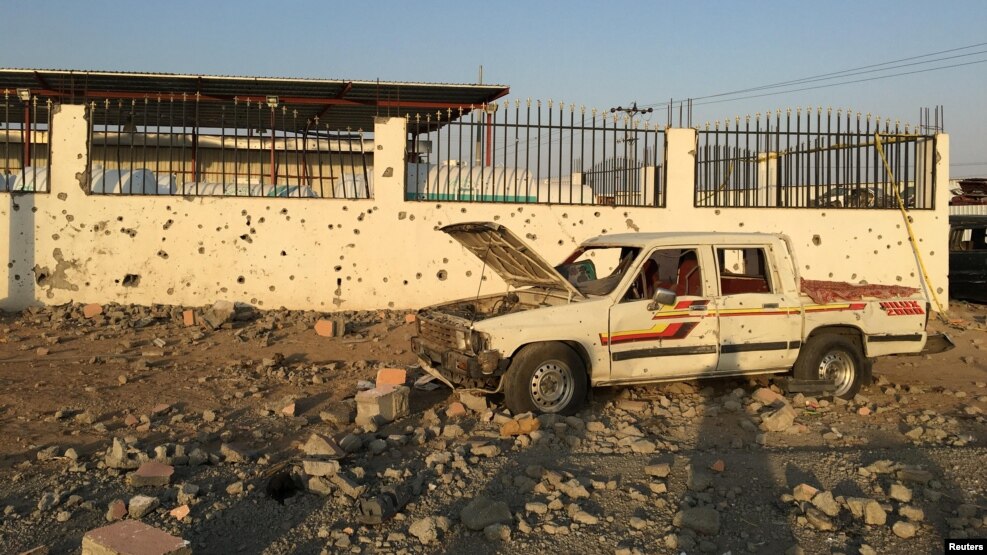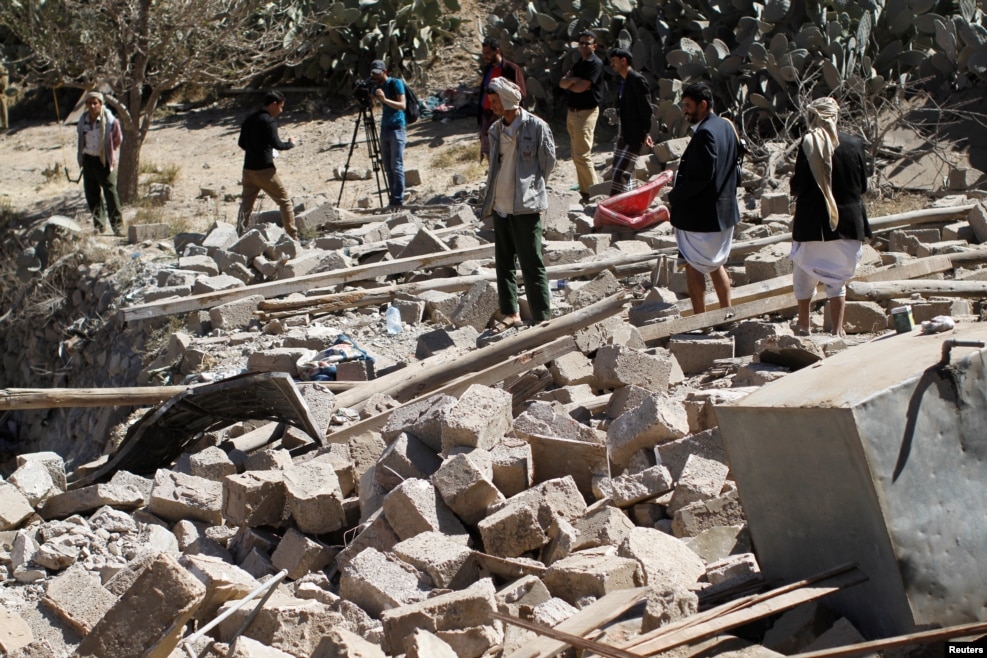Date: Mon, 6 Feb 2017 21:18:29 +0100
Yemen Proxy War Adds to Tensions Among US, Iran, Saudi Arabia

FILE - A car sits next to a salvage yard hit by a Houthi rocket in an industrial area in eastern Najran city, Saudi Arabia, Aug. 27, 2016.
-
Edward Yeranian
-
Saudi Arabia has accused Iran of involvement in a series of missile attacks launched from Yemen. Saudi Arabia says the attacks also targeted its naval vessels in the Red Sea. Some analysts worry that the ongoing proxy war between Iran and Saudi Arabia could escalate.
The almost two-year-old proxy war between Iran and Saudi Arabia in Yemen has been aggravating both regional and international tensions. Yemen’s Houthi militia, which controls large portions of the country and is aligned with Iran, is battling Saudi Arabia and its allies for control of the country and strategic ports along the Yemeni coast.
Nothing, however, has provoked tensions more than ballistic missile and rocket attacks by Yemen's Houthi militia fighters and forces loyal to their ally, former President Ali Abdallah Saleh. Saudi media reports say that Iran has supplied some of those missiles and rockets, in addition to helping train combatants to use them.
Saleh, who held power for nearly 34 years before stepping down in a Gulf-brokered power-sharing agreement in 2012, said his own forces and Houthi allies will stop firing missiles into the Saudi Kingdom if a cease-fire deal is worked out.
He said that missiles fired into Saudi Arabia, both across the border and into Saudi military and industrial facilities deep into the country, will stop [once a deal is reached].
No cease-fire deal, though, appears close at hand and the battle for control of Yemen took an ominous turn last week when Iranian-supported Houthi fighters attacked a Saudi warship off the coastal port of Hodeida, killing two Saudi sailors.
Saudi-owned al Arabiya TV reports that a Houthi suicide boat hit the vessel, while the Houthis say a missile they launched struck it. The incident occurred just days after the Saudi-led coalition captured the nearby Houthi-held Red Sea port of al Mukha.
Arab media reported Monday that the Houthis have mined waters surrounding the port of Hodeida, further south, in a bid to prevent Saudi forces from trying to take the strategic facility near the Bab al Mandeb and international sea lines leading to the Suez Canal and the Israeli port of Eilat.
Saudi analyst Ali Touati argued that the upcoming battle to take Hodeida will not be easy and that the Houthis' Iranian allies are not likely to let it fall easily.

People walk on the rubble of a house destroyed by a Saudi-led airstrike in Sana'a, Yemen, Feb. 2, 2017.
He said that Iran and the Houthis are not eager to see the port of Hodeida fall and will fight hard to prevent it from happening, especially after the recent loss of the smaller port of al Mukha.
Analyst Khattar Abou Diab, who teaches at the University of Paris, told VOA that he thinks the attack on the Saudi naval frigate al Medina last week, along with a recent missile test, were intended to test the resolve of the new Trump administration.
He said that [recent Houthi] missile attacks [into Saudi territory] and the attack on the Saudi naval vessel during the past couple of weeks were meant to test the pulse of the Trump administration and see how it would react and they discovered that it would act much more forcefully than the prior Obama administration.
Abou Diab said he doesn’t expect any direct conflict between the U.S. and Iran over recent incidents in Yemen, arguing that Tehran prefers proxy wars and small attacks, here and there, in places like Iraq, Bahrain or Yemen.
Former Iranian President Abolhassan Bani Sadr, however, is not so sure, telling VOA that he worries that the Trump administration’s forceful language, along with recent new sanctions it imposed on Tehran, could spark a conflict.
He said that harsh words and fresh sanctions imposed by the U.S. could result in war. Iran and Saudi Arabia, he notes, are already fighting a semi-war in six areas, including on the military, diplomatic, economic, religious, terrorism and propaganda fronts, and he thinks the state of war could worsen unless the US helps de-escalate the situation.
President Donald Trump told Fox News, in a recent interview, that he thinks Iran has “total disregard for the U.S.” Defense Secretary James Mattis has also called Iran the “biggest state sponsor of terrorism in the world.”
Bani Sadr worries that such language could increase tensions and in his words, "could undermine the Iranian people’s long-standing opposition to many of the policies of its own regime."